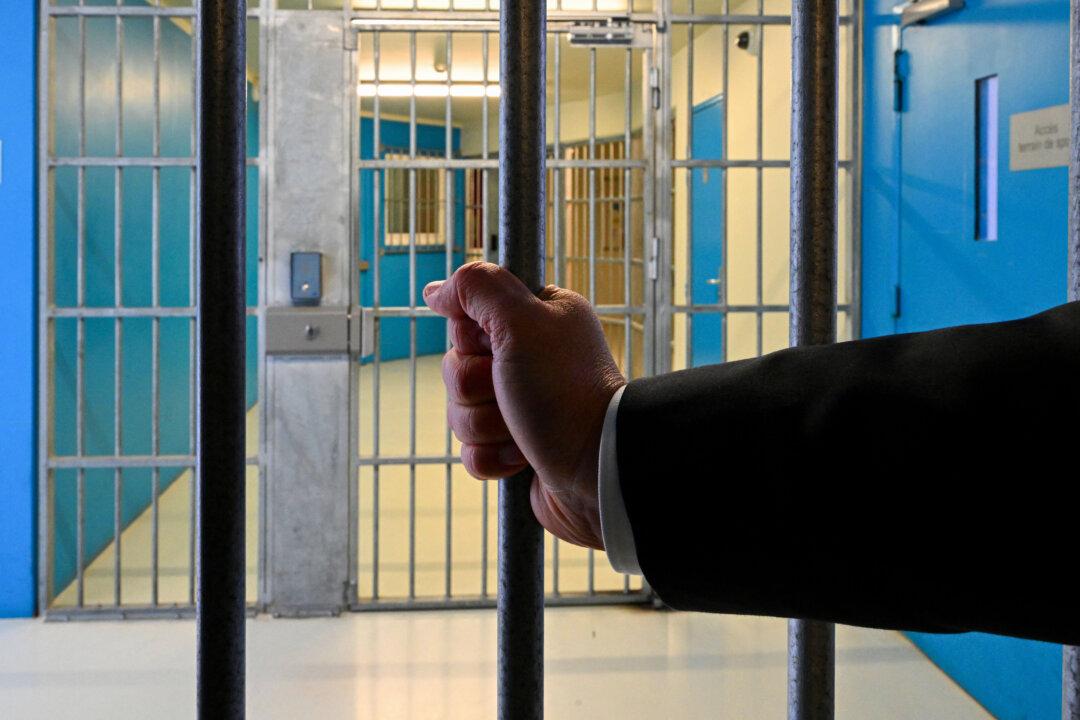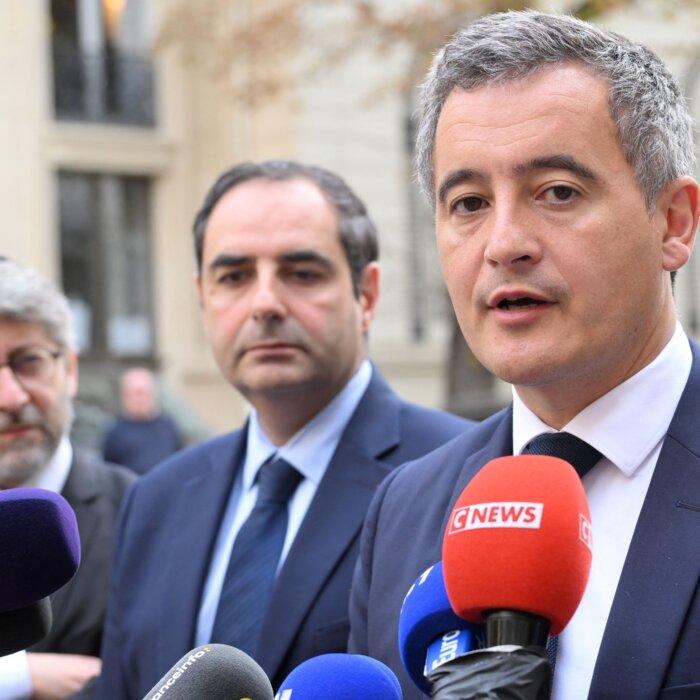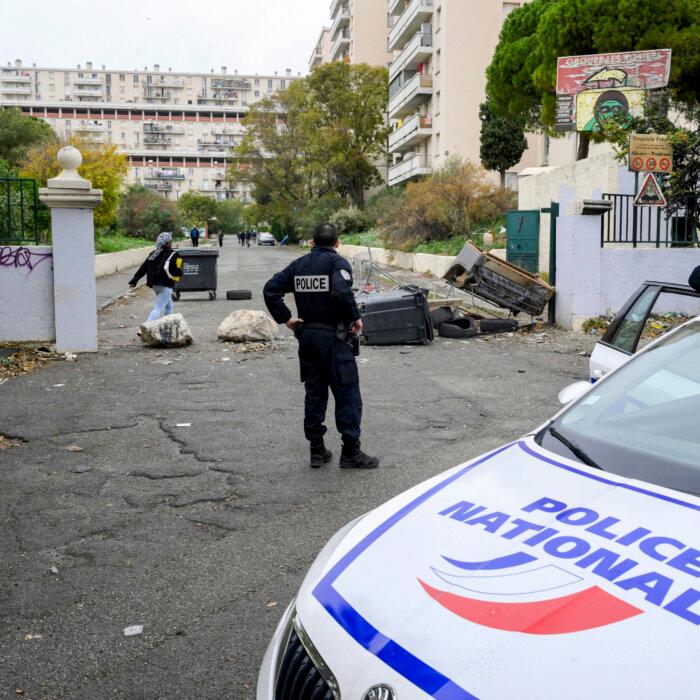For the second night in a row, coordinated arson attacks have targeted French prisons.
At a press conference, he also said sites Vendin-le-Vieil, located in northern France near Lens, and Condé-sur-Sarthe, in the Normandy region near Alençon—both high-security prisons—had been “threatened.”
The letters “DDPF”—an acronym for “Défense des Droits des Prisonniers Français” (Defense of the Rights of French Prisoners) continue to be tagged on attack sites.
Francetvinfo also reported that the group DDPF—believed to be a far-left collective—claimed responsibility for the attacks.
“We are not terrorists; we are here to defend human rights inside prisons,” the group stated.
The Epoch Times has not been able to verify DDPF’s Telegram account.
“Social media now creates these kinds of mimetic moments that are indeed aimed at testing key areas of the country, at pushing the state back, at making prison officers afraid, at getting them to possibly call for a strike, and at sparking debates about whether the Minister of Justice is going too far in his firmness,” he said.
“So, we’re not going to back down despite the threats.”
French prison union Syndicat Force Ouvrière Justice said in a statement on April 16 on social media platform X that an arson attack “targeted the block of flats of a prison guard in Meaux, with the inscription ‘DDPF’ found on the scene.”It stated that it “strongly condemns this cowardly act” and offered its full support to its colleague.
“Our colleagues are not targets,” the union stated.
The PNAT stated that officers from France’s domestic intelligence agency DGSI would assist in the investigation.
“The nature of these facts, the targets chosen and the concerted character of an action committed on multiple points on the territory, as well as the objective to seriously disturb public order with intimidation ... leads, at this stage, the national anti-terrorism prosecutor’s office to take charge to ensure, in this unprecedented context, national coordination of the probes involved,” PNAT said in a statement.
A deadly shootout on Nov. 1, 2024, in the once-peaceful French town of Poitiers, historically known for its medieval churches, resulted in the death of a 15-year-old boy—who was shot in the head—and left the nation shocked.
The gunfight, which involved hundreds of people, was the latest in a wave of drug-related crimes that has transformed cities such as Poitiers, Rennes, and Marseille into battlegrounds, where even children are caught in the crossfire—shot, stabbed, and burned alive.In Poitiers, Retailleau raised alarms about the rise of these “narco-enclaves,” comparing the situation to the growing control that drug cartels have in Mexico.
Retailleau said that the country faces two choices: “Either there is a general mobilization, or there is the Mexicanization of the country” or risk the formation of gang-controlled “enclaves, mini-states, narco-enclaves” in French territory.







